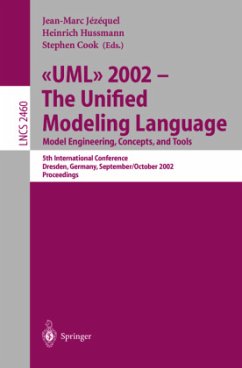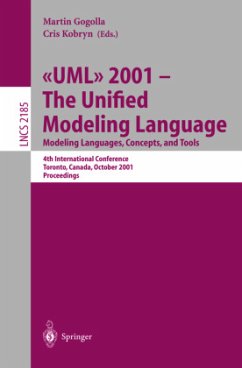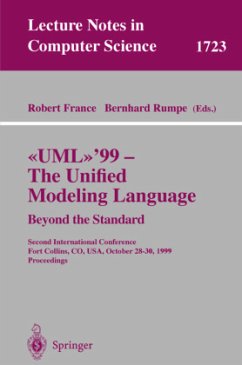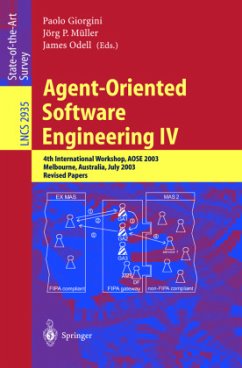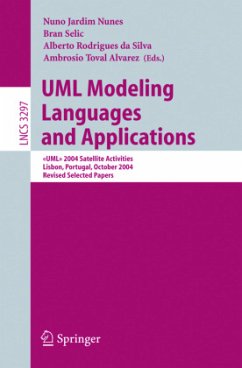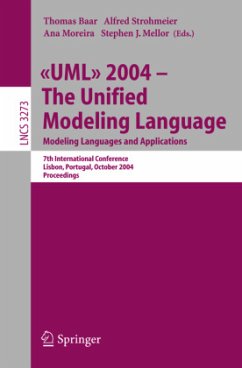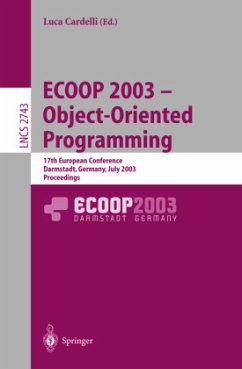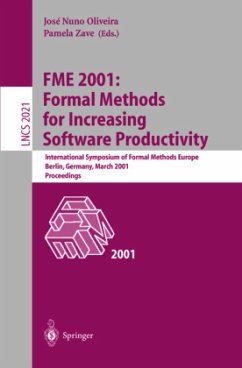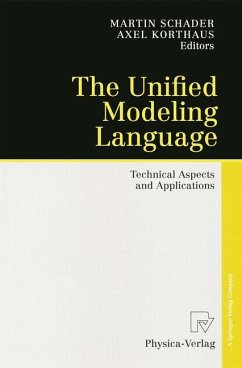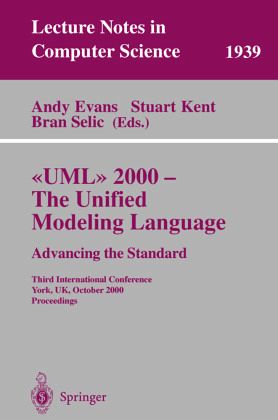
UML 2000 - The Unified Modeling Language: Advancing the Standard
Third International Conference York, UK, October 2-6, 2000 Proceedings
Herausgegeben: Evans, Andy; Kent, Stuart; Selic, Bran

PAYBACK Punkte
39 °P sammeln!
This book constitutes the refereed proceedings of the Third International Conference on the Unified Modeling Language, > 2000, held in York, UK in October 2000. The 36 revised full papers presented together with two invited papers and three panel outlines were carefully reviewed and selected from 102 abstracts and 82 papers submitted. The book offers topical sections on use cases, enterprise applications, applications, roles, OCL tools, meta-modeling, behavioral modeling, methodology, actions and constraints, patterns, architecture, and state charts.
Shall I go o? to South America? Shall I put out in my ship to sea? Or get in my cage and be lions and tigers? Or { shall I be only Me? A. A. Milne, When We Were Very Young The Uni?ed Modeling Language (UML) is a language for specifying, visu- ising, constructing anddocumenting the artifacts of softwaresystems. The UML originated from the wave of object-oriented analysis and design methods (OOA & D) that appeared in the early 1980 s and 1990 s. It s formation came about in direct response to a call for a standard OOA & D method by the Object Management Group (OMG) in 1996/7. Since then, the UML has arguably become the lingua franca of the software engineeringcommunity itisrareto ?ndanewCASE tool,softwareengineering text, course or method that does not support UML in some way. This success canbe attributed to many factors.The mostimportant ofthese hasbeen UML s capitalizationofageneralmoveinthesoftwareindustrytowardsopenstandards. This has demonstrated that industry is more interested in a common, standa- ised modelling approach than in the particular philosophies that distinguished the earlier approaches to OOA & D. In addition, the UML standard has clearly bene?ted from its association with the OMG, which has provided an excellent open forum for its development. Currently, the OMG/UML standard is at v- sion1.4.However,atthetimeofwriting,UMLisonthevergeofalengthyperiod of major review and revision, which will result in version 2.0.





